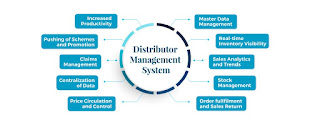Reasons, Why SFA is Failing?
At present, the Indian FMCG industry is embracing technology like never before with betting big on the power of emerging technology like mobile analytics, cloud, social engagement platforms, and the Internet of Things to emerge as a digitally savvy industry. It seems like the industry is on the right track. However, with the opportunity to symetricise such a vast quantum of data, the fundamental ideologies governing automation should be well explained and understood. Mere deployment of sales automation and BI tools would not always deliver the desired results due to minor technical errors of application or even psychological apprehensions.
Let's look at the factors that are hindering your current SFA implementation.
Unclear ideology and vision
We meet a lot of Industry stalwarts in our nature of business. , your teams might be working well with manual processes, and you are meeting your numbers, but implementing a new software should be clear to you and your top management on how it can further help you optimize your sales processes and team performance.
Once you get answers to these questions and you're on the same page with your vendor.
Streamlined core responsibilities
One cannot start the automation journey without defining the key stakeholders- Who will be the ultimate users, who will be reviewing the data, the role of MIS teams, the training, and adherence of sales teams.
Several times, comparative analysis and research-based procurement help analyze the best SFA solution for one's business.
Proper implementation of multiple workflows
The implementation of SFA should be carried out post proper planning and scheduling of steps like installation, training, and going live date. Adequate time should be allowed for each stage's competition before the transition, and the vendor should supervise the entire process.
Understanding the As-Is sales process
One of SFA building's most productive aspects is to closely understand the company's current sales process and consult on what needs to be altered and what should be kept as-is. As an automation head, it is your responsibility to ensure the vendor understands your business supply chain and ask questions related to exceptions and boundaries.
Perceived lack of commitment for SFA from senior management
Ultimately, SFA adoption should follow the bottom-up approach and should not be restrained to the sales team. In its absence, any benefit derived from Salesforce will be lost as the user abandons the automation efforts and delivery.
Impart proper training and change management
The complexity results from a lack of information/no proper training, or mere theoretical knowledge on the subject. Companies need to understand the advantage of time investment in end-user training.
Customer service
The criticality of having customer success teams and backend support ensure the diversion of any contingent complexities and building trust with the customer.
Unrealistic expectation
When we deploy an automation process, the business must understand that it is not a complete one-in-all solution. An SFA module integrated with CRM/business analyst/etc. have specific goals and should not be expected to draw exponential results voluntarily or perform micromanagement. For example, your SFA app can help you make your teams perform better by engaging them, giving real-time performance visibility, giving public recognition, and rewarding them for their performance. If you want to explore your business's untested reins, do get in touch with our experts today.




Comments
Post a Comment